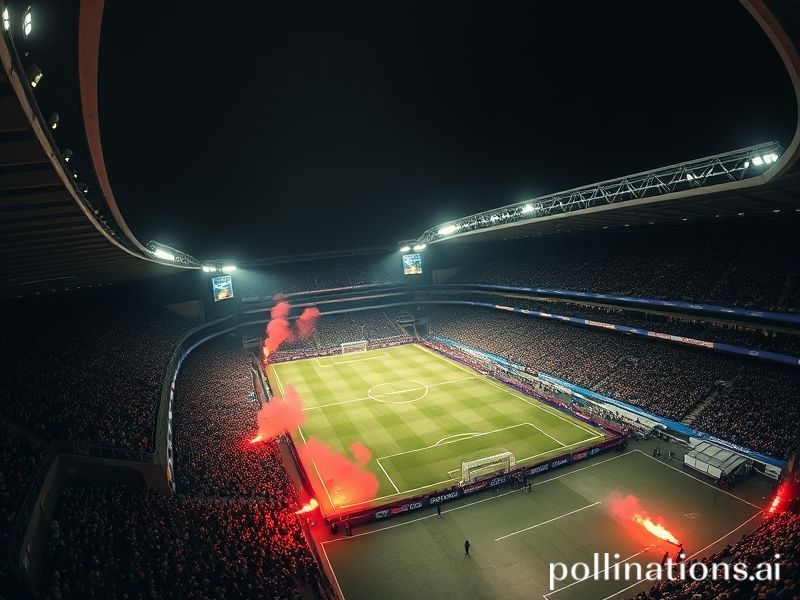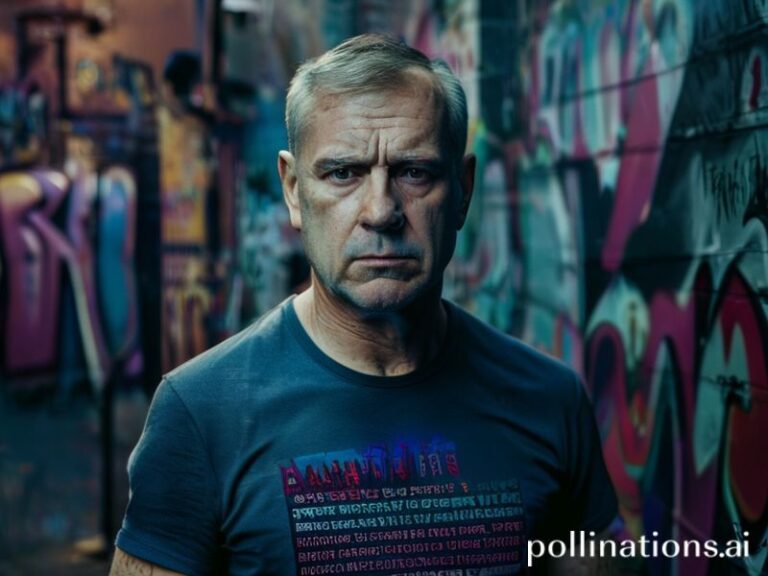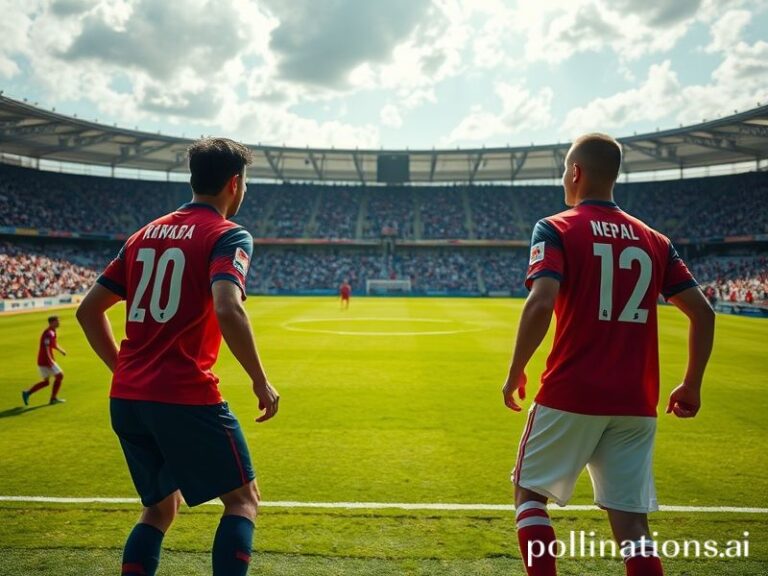From Ottoman Collapse to VAR Apocalypse: The Global Timeline of Liverpool vs Everton
Liverpool vs Everton: A Timeline of Friendly Hatred in the Age of Geopolitical Chaos
By our man in the departure lounge, still waiting for a flight that left in 2018
1892 – Birth of the Rivalry
While Europe was busy redrawing maps with crayons dipped in blood, two church teams in a damp English port decided they couldn’t share the same pew. Everton walked out of Anfield over a rent dispute; Liverpool moved in and painted the walls red, establishing the first recorded instance of football as gentrification. The Ottoman Empire collapsed a generation later, but the grudge survived both world wars and the invention of the vuvuzela.
1966 – World Cup Year, Local Meltdown
England wins its only Jules Rimet while hosting; Liverpool and Everton fans respond by turning the derby into a referendum on which postcode produced the most useful World-Cup-winning scousers. Roger Hunt started for England; Evertonians still insist Ray Wilson was the real hero because full-backs are under-appreciated, like UN peacekeepers in any given decade.
1984 – Heysel, Bradford, Miners, and Midweek Fixtures
Margaret Thatcher privatises everything that isn’t nailed down, the IRA plants enough Semtex to make commuters nostalgic for traffic, and ITV still finds space to broadcast a 0-0 that ends with three red cards and the philosophical question: is a city still a city when half of it is unemployed and the other half is on probation? Liverpool wins the league; Everton finishes seventh, proving that meritocracy is negotiable.
1989 – Hillsborough and Shared Mourning
Ninety-six Liverpool fans die; Evertonians hand over their scarves, their food banks, and their season tickets to grieving families. The world learns that tragedy can briefly suspend tribal hatred—useful knowledge for any UN negotiator—and that the Sun newspaper is best used as emergency toilet roll.
1995 – Everton’s Last Trophy, Globalisation’s First Bite
Everton beats Manchester United in the FA Cup final. Somewhere in a Singapore hawker centre a kid wearing a knock-off Ronaldo jersey asks, “Who are Everton?” The same year, Amazon incorporates, ensuring future derbies will be live-streamed to insomniac dentists in Kuala Lumpur who just wanted to watch The Grand Tour.
2005 – Champions League Miracle, Local Drought
Liverpool wins in Istanbul on penalties so absurd they violate the Geneva Conventions. Everton finishes fourth yet still has to enter Champions League qualifiers because UEFA ranks them somewhere between Moldova and a tax haven. The EU politely pretends this is normal, like pretending Hungary is still a democracy.
2016 – The Brexit Derby
The day after the referendum, Liverpool votes 58 % Remain; Everton’s postal district clocks 51 % Leave. Anfield flies the EU flag; Goodison Park mutters something about “taking back control of set pieces.” The pound plummets faster than Ramiro Funes Mori’s tackle on Divock Origi, which also broke his own ankle and metaphor for the national mood.
2020 – Pandemic Football, Apocalypse Lite
No fans, canned crowd noise, and a 2-2 draw that felt like watching two ghosts argue over inheritance rights. Meanwhile the world queues for toilet roll and Everton’s new oligarch-funded stadium plans stall because someone in the Cayman Islands misplaced a comma. Liverpool wins the league behind closed doors; the trophy presentation resembles a hostage video.
2022 – The Queen Dies, Money Kneels
Both clubs observe a minute’s silence, proving the monarchy still outranks VAR in the hierarchy of British grievances. Later that season, Everton escapes relegation by beating Bournemouth, a result celebrated with the same gusto as the fall of the Berlin Wall if the Wall had been built by Mike Ashley.
2024 – Present Day, Infinite Present
Liverpool chases another title under a manager who looks like he reads Sartre for fun. Everton lurches from appeal to appeal over financial fair-play breaches, a phrase increasingly oxymoronic. The derby is now beamed to 190 countries, allowing Mongolian yurt dwellers to marvel at scousers inventing new swear words in real time. Tickets cost more than the average Moldovan annual wage, but at least the stadium Wi-Fi works—so you can live-tweet your existential despair.
Conclusion
From imperial decline to neoliberal excess, from terraced houses to crypto-riche box seats, the Merseyside derby has mirrored every global convulsion with admirable provincial stubbornness. Armageddon may come, but on some irradiated Saturday the dead will still argue whether that 1971 offside call was bollocks. And honestly, reader, isn’t that the most reassuringly human thing you’ve heard all week?







